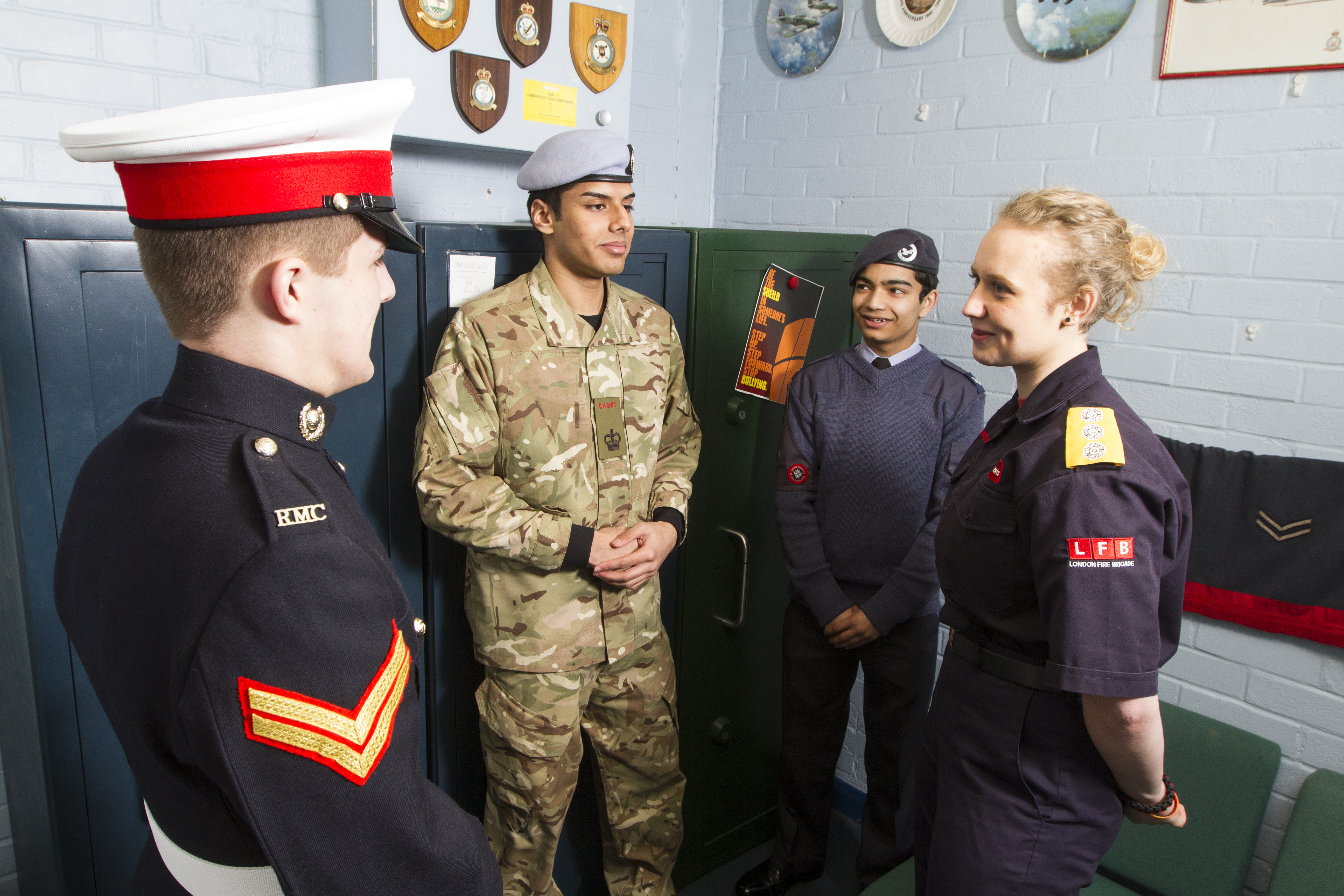Cadet Forces increase social mobility and help disadvantaged kids reach potential
Date 3.10.2017

A University of Northampton report demonstrating significant social impact of the UK’s cadet forces has been welcomed by Defence Secretary Sir Michael Fallon.
The newly unveiled research looked at the entire cadet programme and found that joining the cadets offers a range of benefits to the individuals involved, and the wider community.
According to the report’s lead author, these include increasing social mobility and helping kids from disadvantaged backgrounds.
Meanu Bajwa-Patel, Senior Researcher at The Institute for Social Innovation and Impact, University of Northampton said:
“The evidence so far has been overwhelmingly positive and demonstrates that the Cadet Forces can make a huge difference to social inclusion, social mobility and the mental wellbeing of young people.”
Launching the report at the Albion Academy in Manchester – itself a school which has a Cadet Force – Sir Michael said he was particularly “delighted” to hear of the benefits bestowed upon cadets from disadvantaged backgrounds.
The ongoing, four-year study by the University’s Institute for Social Innovation and Impact is using Government data and original research to measure the economic and social benefits delivered by the Cadet Forces.
Its key findings so far include:
- The social impact of Cadet Forces is vastly greater than the annual cost of the cadet programme to the defence budget.
- Cadet Forces help children receiving Free School Meals achieve their potential.
- Children excluded from school who join the Cadets are more likely to have improved attendance and behaviour on their return to school.
- Cadet Forces help make communities more inclusive by helping people to overcome disadvantages in the way school does not.
- Serving soldiers who used to be in the Cadets are four times more likely to be a senior non-commissioned officer or an officer.
The report also found that Cadet Forces help to develop an individual’s communication, confidence and leadership skills, as well as increasing their awareness of the Armed Forces and improves respect for veterans.
Speaking during the launch, Sir Michael also announced the approval of 31 new cadet units in state schools across the country under the Cadet Expansion Programme.
“Joining the cadets is a great way for young people from all backgrounds to develop leadership, confidence and communication skills.
“I’m delighted that this new report shows the social value the cadet programme brings to the country, in particular helping kids from disadvantaged backgrounds achieve their potential.”
The new cadet units, established under the MOD and Department for Education’s Cadet Expansion Programme is backed by £50 million funding from LIBOR fines, which pays for set up costs, the cadets’ uniforms, equipment and training.
The new units also include the first school cadet unit to be approved under the programme in Wales.
More research on the Cadet Expansion Programme and Cadet Forces across the devolved nations is planned, allowing the research team to evaluate the social impact further, added Meanu.
“Participation in cadets is clearly life changing for many young people and adult volunteers. The Cadet Forces deliver impact that is directly relevant to the Prime Minister’s vision of a ‘shared society’, and clearly contribute to increasing social mobility and decreasing social disadvantage.”
‘What is the social impact resulting from the expenditure on cadets? Autumn report 2017’ is available here.